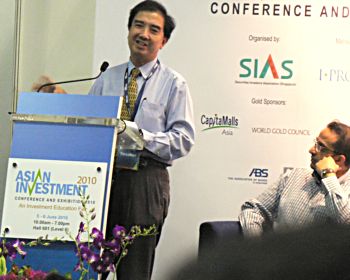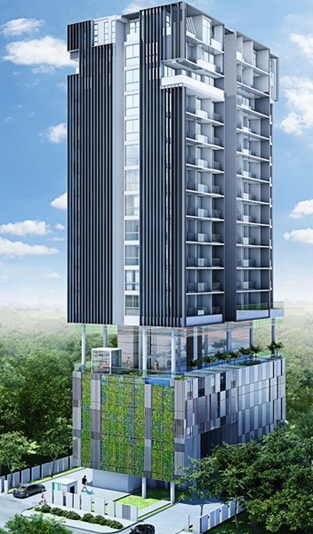InvestFair 2010......some questions posed to the panel on Themes for 2010....from Genting to where the STI Index will be by the end of 2010
The following was posted by Kevin Scully, executive chairman of NRA Capital, yesterday. Visit www.nracapital.com

InvestFair 2010 was held at Marina Bay Sands......the YOG made getting their last Saturday a bit difficult for me because the roads were closed and only opend at 1pm. Finding parking at the Convention Centre wasnt difficult especially when your daily rate could be as high as S$30.00. The building is still under construction so signs and directions were a problem.
Our session was well attended....the hall was full with standing room only. I thought I would share some interesting questions here:
Genting Singapore
Gabriel originated this question by saying that investors shouldnt trust analyst recommendations given that many analysts who had calld sels on Genting were now calling BUYs....with some citing the "luck" factor as a basis of the recommendation. At current levels, he said that Genting was the most expensive listed casino in Asia.....I take that to mean that its a bit to pricey now....for investors who dont own the stock.
I dont follow the stock directly but have followed Genting Bhd and Resorts World before. I think the main issue with Genting is whether the revenue it reported is sustainable.....when a casino opens and is new, especially in Singapore, our first, there is what I call the novelty effect. We saw this in Sands Macao which recouped its investment costs in nine months. What is more important to me is sustainable revenue and profit and we are likely to only see this in year 2 or 3 when the novelty wears off and also in the face of competition from the region.
Intutively, I agree with Gabriel, that if its the most expensive listed casino in Asia.....the risk reward doesnt favour medium investors entering at these levels.
Where will the STI Index be by the end of 2010 ?
I answered this question by saying that as about 45% of the STI Index is financials, ie the three banks and SGX, a call on the Index is a call on the financials. I also asked whether knowing where the index would be was useful for investors as I felt that blue chips would be range bound and that investors would find more value and upside in the mid-caps. On the index, i said that if we keep all other stock prices at current levels and use the target price of the four financial stocks by analyst as their closing price by the end of 2010, we could be looking at 10-15% upside in the STI Index from these levels.

Where would I invest S$100,000 now ?
Notwithstanding the uncertainty about the strength of economic growth in the OECD and concerns about a double dip recession, equities world wide are cheap with many markets standing at historical low PER levels. An expectation of low interest rates at least until the second half of 2011 would favour equities as an asset class (anyway you cant buy property with S$100,000).
I would therefore be 100% of the S$100,000 in Singapore equities with 50% in growth and low PER stocks (mainly technology) and 50% in high dividend yield plays. I didnt say it at the seminar but you can just look at my Stock Picks and my Dividend Yield Picks for which stocks to look at.
Singapore property prices ?
The views of the panel were mixed with some indicating that the targetted population size automatically meant that prices had to go higher. I took a different view stating that the major risk was not demand and supply but Government policy. The Government had tried to cool prices but the measures dont seem to be working partly due to the fact that borrowing costs are low and investors are looking at a hedge against inflation.
I added that the issue of property affordability by Singaporeans could be a political issue in the up-coming elections and that the Government needed to address this. I speculated that more specific measures would be needed such as tiering the up front cash portion for owner-occupied buyers versus investors, a local and foreign tranche for property - much like our local and foreign ownership stock listings some years ago. Implementation would be nightmare but something needed to be done.
I then suggested that for property investors - they may find better value in the mid-cap listed property stocks - many of which are trading at discounts to their revised NAVs.
Recent story: KEVIN SAYS: "I remain bullish on the electronics and tech sector"



